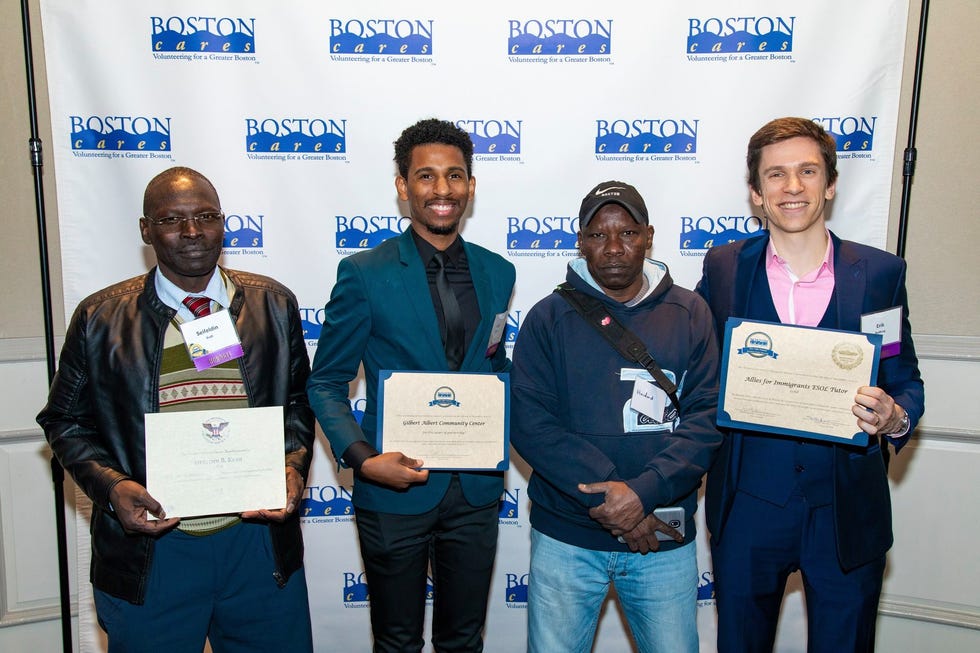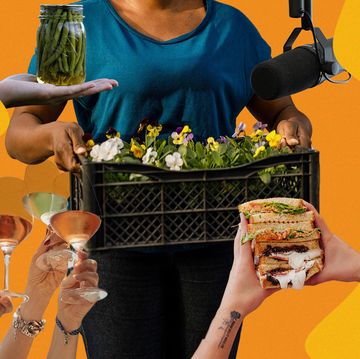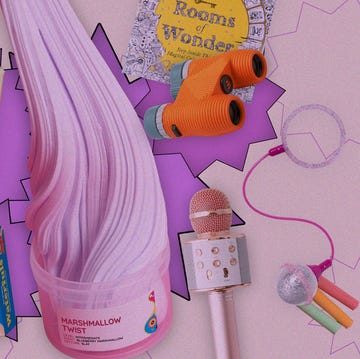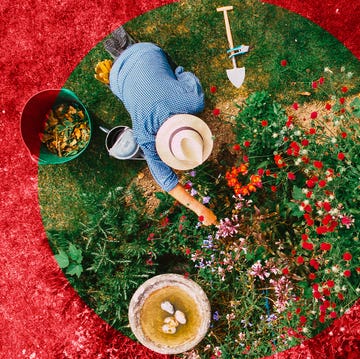In the Shondaland series Reclaiming Home, you’ll learn that home is more than the place to lay your head at night. It’s a space where families gather, memories form, and a sense of calm begins. From joy-sparking plants to aromas that illicit comfy feelings, the ways in which you can maximize and take ownership of your home are varied. So settle in, and let's look at all the ways we make places and spaces our homes.
For a lot of people born and raised in the West, particularly the United States, the notion that we’d have to grab whatever belongings we could in an instant and flee because the government collapsed is beyond unfathomable. But as we’re all watching that play out in real time right now, many people around the world know firsthand that the place they call home could vanish in an instant.
“I had to run,” Arafat Safi, who fled Afghanistan just four months ago, after the Taliban seized power in August, tells Shondaland. “For myself and my family.”
As a senior operations advisor for the Afghan ministry of foreign affairs, Safi enjoyed a prosperous life in Kabul, a metropolis of four million people that’s full of high-rises and shopping malls. He saved for 15 years to buy an apartment; with his wife, his mother, and four children aged 10, 8, 6, and 4, Safi lived in a spacious flat where an ornate wooden bookcase took pride of place. “I loved it so much,” he says. “Whenever I had weekends, I’d decorate. Change the design, the furniture. I would be stressed out from work and tired — then come home and feel comfortable above everything.” Six months ago, still secure in his surroundings, Safi bought two Toyota 4Runners: one for himself and another for his father-in-law. “They were beautiful cars.”
These days, a cousin looks over both cars and Safi’s flat. Under Taliban law, had Safi’s place sat empty, it could be seized. Not that he could go back to Afghanistan any time soon anyway. As the fundamentalist group was beginning to take power last summer, Safi knew he had to get out, urgently. “They knew about me; they knew my boss, who signed an agreement with the United States. They put me on their radar. I was very frightened. Not for the danger of my life, but for leaving my kids in another country.”
Fortunately, Safi’s job and connections allowed him to arrange passports and visas, but the escape was still a grueling ordeal that had him traveling by road to Pakistan, Turkey, and India. He couldn’t even go to the airport to leave, knowing people would spot him there. For two months, he sojourned, separated from his wife and children — all of them with nothing more than the summer clothes they could grab and, in Safi's case, some cash. With the help of organizations who partnered with Welcome.us, an organization to help mobilize Americans to welcome newcomers, including Afghan refugees, Safi and his family landed in Alexandria, Virginia, in late 2021.
They share a three-bedroom apartment near parks. The kids are happy. They like their school. The community is full of other Afghans, some of whom run Afghan markets and sell the Afghan bread Safi calls a lifeline. He never could’ve imagined he’d have to leave home, but now home has taken a new meaning. “There are very kind people here who picked us up, helped us. We have managed to decorate. It’s really important for Afghans to be sun-facing, and we have sun in almost all the rooms. I feel that now if we move, I would miss it. [Alexandria] is turning into a place that, day by day, feels like home.”
Home can mean a lot of different things to different people. For some, it’s where they grew up. Others think of home as the physical place where they store their belongings and sleep at night, while someone else considers home wherever they are and feel at ease. Home can be an elusive, fleeting concept without a fixed definition, like love or happiness or luxury. But if there is anyone best suited to define, or at least convincingly explain, what home really means, it’s someone who had to pick and make home in a new place. Nearly everyone has done it: Whether going away for college, moving to a new city for a job, or resettling just for adventure or even under duress, changing environments means fashioning not only a physical space that keeps us safe, but finding a sense of emotional safety and warmth in a larger community outside one’s actual walls.
Like Safi, Luidgi Lalanne made the U.S. his home, and not by choice. He was only 12 when his father, an architect, and mother, an administrator at a large company, fled Haiti after the 2004 coup forced President Jean-Bertrand Aristide from office. Vulnerable because of their wealth and connections, Lalanne’s parents watched as other families of means were targeted. Kidnappings became common. Already anxious about their safety, the Lalannes saw their home attacked in December 2004. Though they were away at the time, their private security got into a shootout with intruders that lasted for hours. “They made the decision that we were going to leave,” Lalanne says. “It was difficult. They didn’t even know English. It was the first time I saw my dad cry. I was really scared. It’s horrifying to be forced to leave your country.”
Eventually, the family settled in Brockton, Massachusetts, where Lalanne now works as a community engagement coordinator, helping other immigrants and refugees find homes too. When he arrived in Brockton as a middle school kid, any jitters he felt were mitigated by his love for American culture, his talent at drawing that earned him new friends, and his perfect French, which the other kids found cool. Now, as an adult, he feels at home where he is, sort of. “In many ways, America feels like home, and then in many ways it doesn’t,” he says. “What made it feel like home is the people who accepted my story and found ways to help. People were very welcoming.” On the other hand, he says, the daunting legal process to be formally granted asylum and citizenship can leave people feeling like they’re not exactly welcomed. “It’s like, ‘Am I fully accepted? Can I be part of this country fully and wholeheartedly?’” Doing something to help others who face the same struggles finding homes in the U.S. makes him feel like he’s making a difference, building a community that helps people feel like they’re home. “Home,” he says, “is a place where you can be yourself.”
Jake Grinsted, new to Los Angeles, shares the same sentiment. Although his relocation was voluntary and nowhere near as arduous as those who were forced to leave home, he’s still finding out what it means to make home all over again. He grew up in a town just east of London and moved to New York after college in 2003, and for him, he’s realizing now that home is more a state of mind. “I grew up outside of the city, with a lot of green, flowers, plants — it felt like I wasn’t in a city.” In moving to Los Angeles, he looked at lots of the modern luxury apartment buildings rapidly being built all over the sprawling city: the ones with the stainless-steel accents, hardwood floors, a rooftop pool, and other chic amenities. None felt right. “I found a stand-alone house in Hollywood Heights. As soon as I walked in, I blurted out, ‘Oh, this feels like home.’ It’s old but renovated; they kept the character. Each window has one stained-glass panel with a design. It has French doors with a deck, and it’s surrounded by trees. It just felt right.”
One important part of making home for him has meant making connections. Fortunately, he already had friends in Los Angeles, which made the transition easy, but he says he’s also found strangers to be welcoming and friendly. “You know the stereotype of the ‘fake’ L.A. people. That wasn’t what I was meeting. One person after another has been cool. A lot of that has to do with where I am in life. I feel more confident and not like I have to bend to fit in. In New York, it was quite difficult at first; I felt like I had to adapt. In L.A., it’s ‘this is who I am; love me or leave me.’” He doesn’t even have much furniture, owing to pandemic-related delays in supply-and-delivery chains. But it doesn’t matter. “I read somewhere, ‘I sat in a room with nothing in it and felt full. That’s when I knew I was enough.’ It doesn’t matter what’s in my home — it’s a place where I can invite friends over who see me as enough, where I can sit and feel at peace.”
For Claire Wyckoff, home has taken on a new dimension now that she’s returned to the place she grew up. An advertising creative and content creator who’s built a following with comedic shorts, Wyckoff has lived in a few cities, including New York and, more recently, Los Angeles. But after feeling burned out with L.A. and now expecting her first baby, she found herself seeking something stabler than the apartment life she’d been living and moved back to her hometown of Richmond, Virginia, with her husband. They just bought a house. “I spent my 20s like, ‘Where can I go?’ [Growing up] I knew I was going to be some working girl in New York City with a space that could only be had by someone as great as me. I thought I’d never move back. Here I am, a mile away from my parents, pregnant.”
Like the rest of us, the pandemic put a lot into perspective for her. “We were like, ‘Society could collapse at any moment.’ The pandemic made me slow down. And it made it so you could work anywhere. One day, I was standing in my $3,000-a-month apartment in [Los Angeles], brushing my teeth, thinking, ‘I think this place has termites.’ This is not what I had imagined.”
Now she, her husband, and her soon-to-be-delivered baby live in a row house in Richmond’s historic Fan District. She’s enjoying decorating the new space, with its hardwood floors, fireplace in every room, and cute backyard. Not only is her lifestyle radically different from her more freewheeling days, her feelings about her hometown have changed too. Once a bastion of conservatism, Richmond has gradually aligned with her personal values — it’s more progressive, with a thriving art and cultural scene and good restaurants — and its infamous Confederate statues are coming down. “It’s nicer coming back home when you’re a little older,” she says, although she jokes that “I do not like being this close to my parents, having someone remind me of my faults regularly.” Nonetheless, being back in a familiar city that’s taken new shape and is close to a support system feels good, at least for now. “With all that’s going on in the world, I want to be somewhere safe where you can have friends over, all your touches, and family photos. I want to be cozy and comfortable and safe,” she says. It’s a universal desire that binds us all, whether you’re fleeing the unthinkable or reinventing yourself for the hundredth time. Indeed, Dorothy said it best: There’s no place like home.
Malcolm Venable is a staff writer at Shondaland. Follow him on Twitter @malcolmvenable.
Get Shondaland directly in your inbox: SUBSCRIBE TODAY














